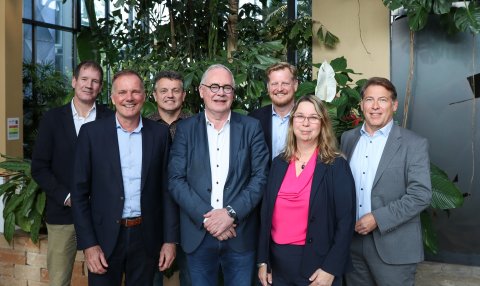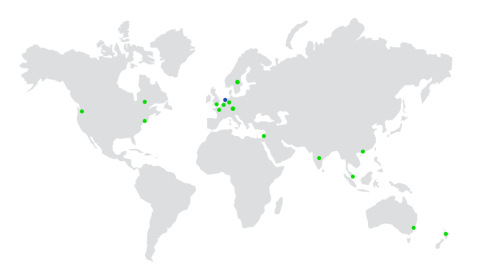
There are only nine months left until IFRS and US GAAP organisations have to include practically all leased assets on their balance sheets, as a result of new legislation. The new standards, named IFRS 16 and ASC 842, will bring a fundamental change to financial statements. Almost every department within an organisation has leases, but only a limited number of these contracts are recognised on the balance sheets for lessees.
The Financial Accounting Standards Board (FASB) and the International Accounting Standards Board (IASB) have decided that lease contracts should be included on the balance sheet from the beginning of 2019. This way, an organisation’s accounts will become more comparable and it will increase financial transparency. As a result, financial liabilities will increase and solvency will decrease. This must be justified to investors, financiers and other stakeholders.
These are significant changes for organisations. The question is: where do they stand at the moment? And what difficulties are they encountering?
A worrying figure
Although the changes are substantial - all leases have to be reassessed and new software purchased - no less than 75% of all organisations are still at the beginning of the implementation. This is the conclusion that I and my colleagues in Deloitte's Risk Advisory department have come to. We are closely involved with the compliance solutions of IFRS 16 and ASC 842. Planon also plays an important role, as they are a software partner of Deloitte in this field.
There are several reasons why the majority of organisations have not yet prepared for the new lease accounting standards. Until now, focus has been on the reporting of annual results for 2017, the implementation of new revenue recognition standards and the GDPR privacy law. That work is now almost complete, so now organisations should be able to allocate sufficient resource to implement the new standards.
Organisations regularly think they can complete the implementation in a few weeks, but it will often take six to nine months if they want to do it right. So that's a lot longer than people anticipate.
Careful with costs
The reason why the majority of financial professionals underestimate the duration of the implementation of IFRS 16 and ASC 842 is because they think it is very similar to the new revenue recognition standards, such as IFRS 15. But the latter standards mainly affect the Finance and Accounting department, while IFRS 16 affects more areas including IT, procurement and property management. As a result, financial professionals have less control; they depend on the input from many different parts of an organisation.
Despite the growing economic market, many organisations are still cautious with their expenditure. They want to do as much as possible themselves and prefer not to use external resources. However, if you look at the scale of the operation, this may not be a wise decision.
In 95% of all cases, organisations know how to assess the new standards. But in the remaining 5%, it turns out to be complicated. This is because the focus of lease agreements has changed from ‘what type of lease is this agreement?’ to 'is this a lease or not?’
For example, when a floor of an office building is leased by the organisation, it is clear that it is a leased asset. But a parking space that you share with other users, is that also a leased asset or a service element, as service contracts are not required to be capitalised on the balance sheet
Time and energy
Preparing for the new lease accounting rules takes a lot of time and energy, so it is important to use the right software to take some of the pressure off. Most software solutions do not support IFRS 16 or ASC 842. That is why Deloitte is committed to its partnership with Planon. In this framework, Deloitte offers advice and guidance for the implementation, while Planon provides the software.
Deloitte and Planon complement each other. We know the market and customers well, while Planon has a lot of experience and understanding of the right software. That is why we want to continue to shape this partnership to prepare our customers for the future.
Visit Deloitte’s web page to find out more about the International Financial Reporting Standards.




















